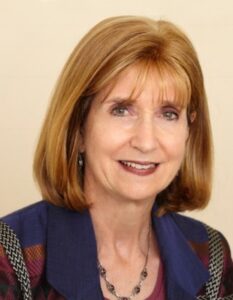Transatlantic Socrates Seminar, March 18-20, 2024, Brussels
The 2024 edition of the Transatlantic Socrates Seminar is an international Leadership Seminar, conducted in English, developed by Aspen Institute Romania (AIR) in partnership with the Aspen Institute Socrates Program, supported by the Bucharest Office of the German Marshall Fund of the US.
Redefining the Future European & Global Architectures
in a Multipolar World
The Seminar was organized in Brussels, in cooperation with NATO and with the support of the European External Action Service. Powered by the Brussels-based AIR Fellows & Alumni Community.
For the 3 days of the Seminar, we explored, in a transatlantic context, how the current wider shifts in the global balance of power and rise of strategic competition are impacting existing approaches in the transatlantic community when it comes to operationalizing societal and democratic resilience.
We are at a crucial time for European and transatlantic security. Today, the Euro-Atlantic area is no longer at peace, dealing with multiple conflicts and the gravest security crisis since the Second World War. The repercussions of Russia’s war of aggression against Ukraine and the broader rise of authoritarian coercion on a global scale will shape European and Global Architecture for decades to come, increasing the pressure to demonstrate that liberal democracy delivers.
This Transatlantic Socrates Seminar sought to incentivize debates on optimal ways of pursuing an enhanced Euro-Atlantic resilience agenda, exploring necessary synergies between relevant institutions and societal stakeholders. Taking place in Brussels, a city serving as a focal point of both the European Union (EU) and the North Atlantic Treaty Organization (NATO), the seminar provided a channel for informal and informed dialogue with key stakeholders on both sides of the Atlantic, in a multi-national environment.
Around 30 participants, influential leaders from the Brussels’ international and diplomatic community, alongside relevant representatives of the diverse communities of the network of international Aspen Institutes, participated in a moderated high-level conversation, benefitting from high-level guest speakers from NATO and EU.
The participation to the seminar was by invitation only.
The 2024 edition of the Seminar debated the following key themes:
- Navigating the New Multipolar Landscape
The world seems to be preparing for more conflict now that the uni-polar moment has ended, and strategic competition continues to rise. Wars are ranging in different parts of the world, including Ukraine, Israel, Gaza, and beyond. Continued crises and conflicts do feel like the ‘new normal’, but we are increasingly more concerned about the potential for new disruptions to emerge or for existing conflicts to expand in scope and scale, including even more regional stakeholders.
How can we effectively engage with a world where power is distributed among multiple actors, each with its interests and agendas?
- Consolidating Transatlantic Unity
The bond is still strong and anchored through existing institutions – with NATO and the EU at the forefront. At the same time, the European security architecture is under severe pressure. The growing ties of Russia with China and, most notably lately, Iran and North Korea show a grimmer picture of what is at stake in Europe and beyond.
How can we strengthen the transatlantic bond, and ensure continued cooperation in the face of growing challenges?
- Countering Malign Influence and Preserving Democracy
Our rules-based order is under immense pressure. Many regional powers mistrust the global institutions created after 1945, while China and Russia want to subvert the global system. The Transatlantic community looks weakened: the US economy is still pre-eminent, but the Western GDP dropped to nearly 50% share of the global one (for the first time since the 19th century). In 2024, more than 50% of the planet’s population will be called to vote, in more than 70 countries. Many elections could entrench illiberal rulers. Others could reward the corrupt and incompetent. Politics as factors of polarization will cast a pall over global developments, while US elections could impact the future trajectory of transatlantic relations.
How can we protect our democracies from disinformation, interference, and malign influence?
- Harnessing the Power of Technology for Good
As new technologies are changing the nature of competition and conflict, we are witnessing permanent disruption amplified by increased interconnectedness and digitalization. Disruptive technologies can bring prosperity, but also generate vulnerabilities, as state and non-state actors seek to manipulate and exploit dependencies. AI gets real, everyone is adopting it, and we are witnessing a race to regulate it and improve it. Computation with advances in biotech, quantum, and human enhancement bring opportunities but also present significant challenges.
How can we best harness digital transformations to support democratic and societal resilience? How can we leverage new technologies to address global challenges, promote economic prosperity, and strengthen democratic institutions?
- Redefining Resilience in a Changing World
To preserve our democracy, we need to increase our capacity to withstand shocks and to function effectively in the newly defined system. At stake is to pursue ethical and value-based interests politically, economically and technologically. Increased NATO – EU cooperation could offer better solutions, both to partners and third states. In the economic arena, we might see a shift from traditional growth metrics to a resilience-centered approach, focusing on providing for communities. Geopolitics will continue to influence the competition for supply chains, taking the connectivity game to the next level, and potentially increasing instability. Risks for popular discontent with higher inflation and labor force migration will equally need to be addressed to mitigate risks of instability.
How can we adopt a more comprehensive and dynamic approach towards national and Euro-Atlantic resilience, building societies that are more resilient to economic shocks, climate change, and other emerging threats?
Moderators of the Seminar:
 Ambassador PAULA J. DOBRIANSKY, Ph.D.
Ambassador PAULA J. DOBRIANSKY, Ph.D.
Senior Fellow at Harvard University, JFK Belfer Center for Science & International Affairs; former Under Secretary of State for Global Affairs
Ambassador Paula J. Dobriansky, a foreign policy expert and former diplomat specializing in national security affairs, is a Senior Fellow at Harvard University’s Belfer Center for Science and International Affairs and Vice Chair of the Atlantic Council’s Scowcroft Center for Strategy and Security. She brings over 30 years of government and international experience across senior levels of diplomacy, business, and defense. She was Senior Vice President and Global Head of Government and Regulatory Affairs at Thomson Reuters and held the Distinguished National Security Chair at the U.S. Naval Academy. Her high-level government positions include Under Secretary of State for Global Affairs, President’s Envoy to Northern Ireland, National Security Council Director of European and Soviet Affairs, and Deputy Assistant Secretary of State for Human Rights and Humanitarian Affairs. A member of the Council on Foreign Relations and the American Academy of Diplomacy, Dobriansky also served on the Defense Policy Board, the Secretary of State’s Foreign Policy Board and as Chair of ExIm Bank’s Council on China Competition.
She has a BSFS summa cum laude from Georgetown University School of Foreign Service and an MA and Ph.D. in Soviet political/military affairs from Harvard University. She has received high-level international recognition from governments of Poland, Ukraine, Hungary, Romania, Lithuania and Colombia.
 RADU PUCHIU
RADU PUCHIU
Former Romanian State Secretary in the Prime Minister’s Chancellery and National Coordinator for Open Government Partnership. Aspen Seminar Alumnus, currently Aspen Technology & Society Program Director and Co-Founder & CEO of H.appyCities, building digital platforms and mobile applications that empower citizens, communities, and local authorities to think, communicate and act collectively for the benefit of the citizens. Radu is also co-founder of TINIA Group, a green energy company.
Radu Puchiu is a public policy and open government consultant with more than 10 years’ experience in the Romanian public sector. As State Secretary in the Prime Minister’s Chancellery, he coordinated strategies and public policies development at the Centre of Government, between 2012 and 2017, and as National Coordinator for Open Government Partnership he represented Romania in the Steering Committee of the OGP at the international level. Starting October 2018, he was invited by the OGP to become an OGP Envoy.
He graduated the Design Academy in Bucharest, and he attended the Internet Leadership Academy at the Oxford Internet Institute, University of Oxford, UK. He is also a member of the Open Data Leaders Network organised by the Open Data Institute London. In 2016 he was selected by Res Publica, Google, Visegrad Fund and Financial Times in NewEurope100 (http://www.ne100.org) top of innovation leaders in Eastern and Central Europe.
Guest Speakers:
MIRCEA GEOANĂ, Deputy Secretary General of NATO
STEFANO SANNINO, Secretary General of the EEAS (tbc)
BENEDETTA BERTI, Head of the NATO Policy Planning Unit


